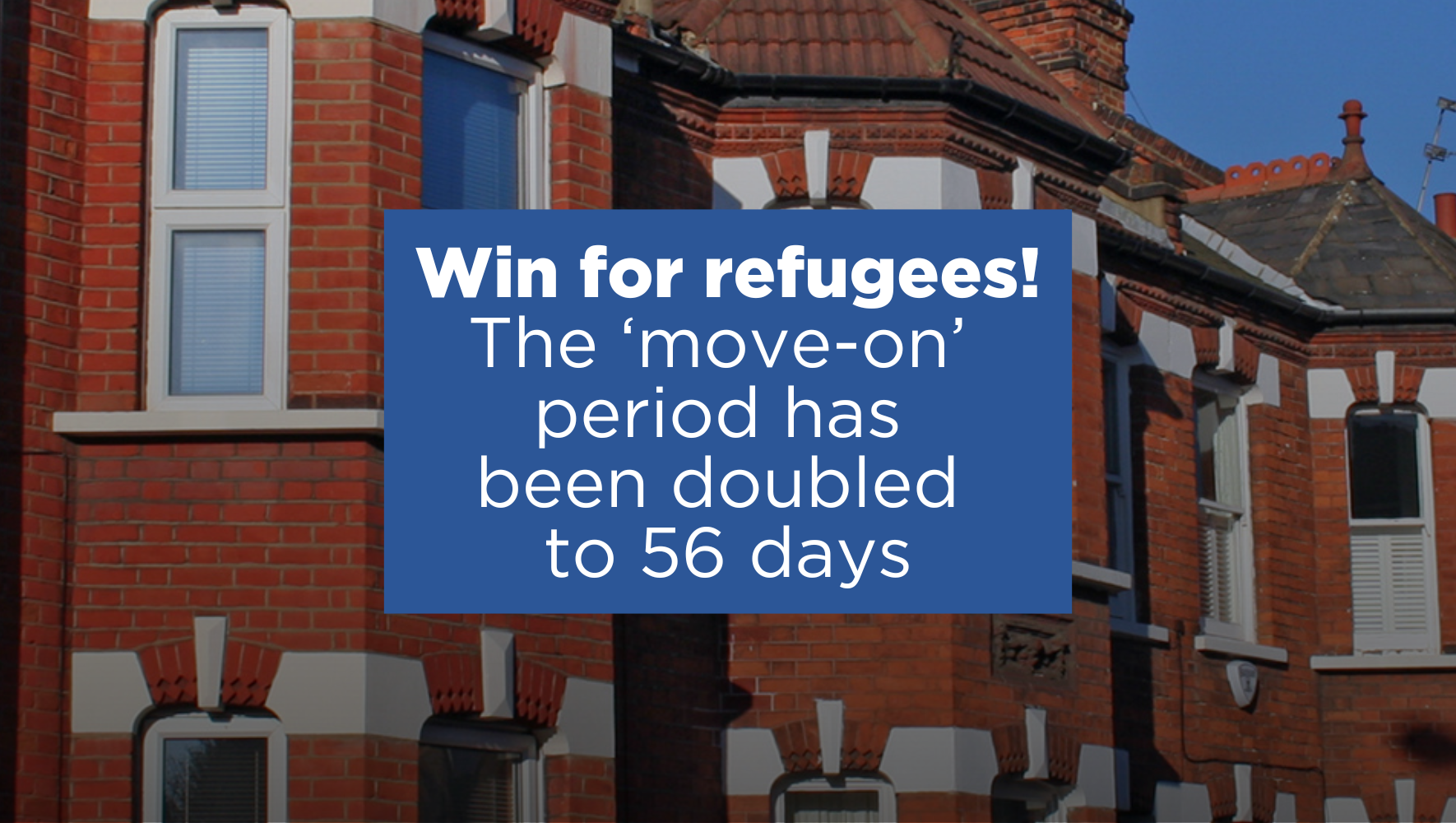
Campaign update: We are delighted that the ‘move-on’ period will be doubled to 56 days, for an initial six-month trial period to June 2025. We will now be pushing the Government to make this change permanent. Read on to learn why you should support this shift – and how you can join our campaign.
Receiving refugee status should be a cause of celebration. But for far too many new refugees, the previous 28-day ‘move-on’ policy instead forced them into homelessness. Here are the reasons why the Government must make the trial 56 day ‘move-on’ period permanent.
What is the ‘move-on’ period?
People waiting for a decision on their asylum claim in the UK receive limited financial support (£49.18 a week, or £8.86 for those in catered housing), and accommodation.
But once they receive a positive decision – either refugee status, or another grant of protection – they previously only received this Home Office support for another 28 days.
What problems did this cause?
New refugees were left with just four weeks to find new, private accommodation (and a way to fund this).
Many don’t have any savings or money to fall back on. People seeking asylum generally aren’t allowed to work while their claims are being processed.
But 28 days is often not enough time to secure employment, or access Universal Credit. New refugees also face cultural and language barriers as they enter a challenging accommodation market, and have to navigate complex bureaucracy to access the support they’re entitled to.
What was the result?
These obstacles forced many new refugees into homelessness.
Data from Homeless Link found a 966% increase in rough sleeping amongst people who had left asylum support between May 2023 and December 2023.
This was partly resultant of a thankfully reversed policy change, which gave new refugees just seven days to leave their accommodation. But it’s clear that the previous policy of 28 days was still far too little time to allow refugees to set themselves up independently. Recent data from NACCOM has found that refugee homelessness increased by 99% in 2023/24 – with the organisation declaring a ” “refugee homelessness emergency” in the UK.
What should the Government do instead?
We need the move-on period to be permanently extended to 56 days. This would address issues with Universal Credit, which has a built-in 35 day delay before a first payment is made, and would match the limit under the Homelessness Reduction Act. Doing so would mean that being granted refugee status can again become a time of celebration, not fear, for displaced people.
If the move-on period isn’t extended permanently, any efforts to clear the backlog will result in thousands of refugees being put at risk of homelessness.

A moral imperative: The Jewish case for extending the ‘move-on’ period
Read More
Three reasons why we must extend the ‘move-on’ period
Read More


